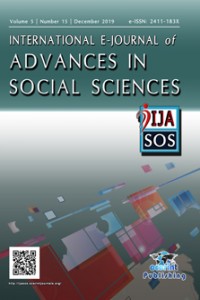Abstract
References
- David-Fox, M. ‘Otsy, deti i vnuki v amerikanskoi istoriografii tsarskoi Rossii.’ In Amerikanskaya rusistika: vekhi istoriografii poslednikh let, ed. Michael David-Fox, 5-47. Samara, 2000. Geraci, R. (2001) Window on the East: National and Imperial Identities in Late Tsarist Russia, Ithaca - London. Khodarkovsky, M. (1996) ‘“Not by Word Alone”: Missionary Policies and Religious Conversion in Early Modern Russia,’ Comparative Studies in Sociology and History, 38 (2), 267-293. Schimmelpenninck van der Oye, D. (2010) Russian Orientalism: Asia in the Russian Mind from Peter the Great to the Emigration, New Haven.
THE PROBLEM OF ADMINISTRATION OF THE BORDERLANDS OF THE RUSSIAN EMPIRE AT THE TURN OF THE 19-20TH CENTURIES IN THE TEACHING OF HISTORICAL AND LEGAL DISCIPLINES
Abstract
The article
analyzes the approaches to the consideration of the imperial policy of Russia
at the turn of the 19-20th centuries in the teaching of historical and legal
disciplines in Russian universities. The authors state the discrepancy between
the results of modern research on the Russian empire and the idea of the
Russian empire as an ethnically homogeneous state that remains in the practice
of teaching. Adjusting such an outdated view requires greater attention to the
issues of heterogeneity of the Russian empire, its place among other empires at
the turn of the 19th and 20th centuries, the nature and typology of the Russian
imperial borderlands and their relationship with the imperial center. Using the
example of the Volga-Ural region, the authors consider the processes that took
place at that imperial borderland of Russia at the turn of the 19-20th
centuries, and its place in imperial politics. The
Volga-Ural is characterized as the first imperial borderland of the Russian
Empire, where a model of Russian imperial politics was formed. The central
place in Russian imperial politics was played by the Christianization of the
local population, which could be either violent or voluntary. The results of
the imperial confessional policy were contradictory. The success of
Christianization led to the beginning of the 20th century to the
formation in the region of new identities among residents, who perceived
themselves as Orthodox, but distinguished themselves from the ethnically
Russian population. On the other hand, the opposition to Christianization by
local Muslims contributed to the identity of the Volga-Ural Tatars, which was
based on adherence to Islam. The article offers a number of specific
recommendations for updating the teaching of historical and legal disciplines
by introducing into their content issues of imperial control at the borderlands
of Russia at the turn of the 19-20th centuries.
References
- David-Fox, M. ‘Otsy, deti i vnuki v amerikanskoi istoriografii tsarskoi Rossii.’ In Amerikanskaya rusistika: vekhi istoriografii poslednikh let, ed. Michael David-Fox, 5-47. Samara, 2000. Geraci, R. (2001) Window on the East: National and Imperial Identities in Late Tsarist Russia, Ithaca - London. Khodarkovsky, M. (1996) ‘“Not by Word Alone”: Missionary Policies and Religious Conversion in Early Modern Russia,’ Comparative Studies in Sociology and History, 38 (2), 267-293. Schimmelpenninck van der Oye, D. (2010) Russian Orientalism: Asia in the Russian Mind from Peter the Great to the Emigration, New Haven.
Details
| Primary Language | English |
|---|---|
| Journal Section | Articles |
| Authors | |
| Publication Date | January 14, 2020 |
| Submission Date | October 30, 2019 |
| Published in Issue | Year 2019Volume: 5 Issue: 15 |
Cited By
Savaşarası Dönemde Türkiye Trakya’sının Askeri Sınır Bölgesine Dönüşümü
Türk Savaş Çalışmaları Dergisi
https://doi.org/10.52792/tws.1185977
Contact: ijasosjournal@hotmail.com
The IJASOS Journal's site and its metadata are licensed under CC BY
Published and Sponsored by OCERINT International © 2015- 2024


